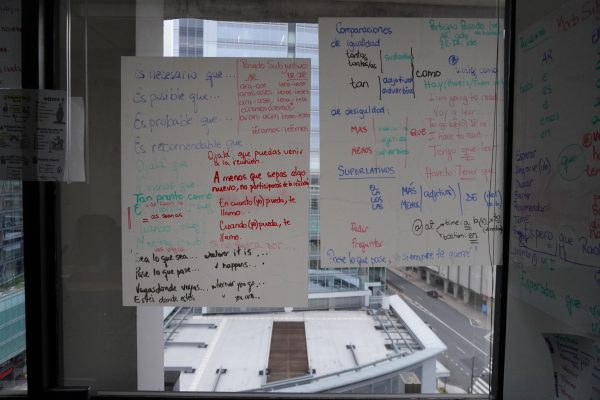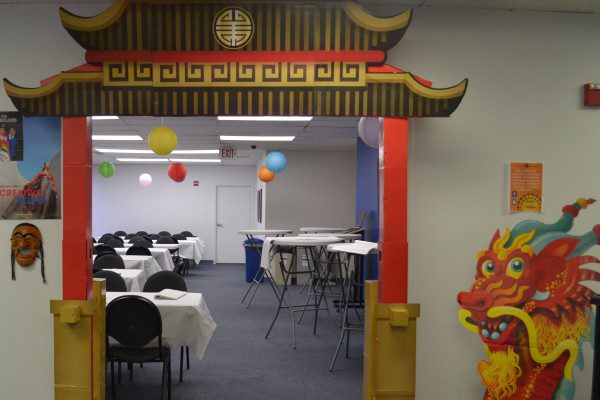It’s Wednesday at 2 pm – you’re in the middle of a hectic workweek, your dog was sick three times this morning, and you need to be en route to pick up your son by 5 pm at the latest to get him to baseball practice. You have the choice of three activities to finish out your afternoon:
- Root canal
- Do your taxes
- Interview for a new position
Which do you choose? It’s a surprisingly tough choice for many people. For most, interviewing is a source of stress, anxiety, and dread. Yet as a teacher, you may find yourself interviewing with several, if not more, schools each year. This is no reflection of your abilities as a teacher, simply part of working in the industry you have chosen. So what can you do to make sure you make the absolute most of every interview?
While we can’t guarantee that the following tips will have you skipping your way out of your next interview, they will hopefully help ease your anxiety and make the process a little less stressful. Remember, an interview is as much about what you say as what you do, how you present yourself, and what you do NOT say. Read on to learn our interview tips for teachers.
Be punctual.
Arrive on time or, even better, a few minutes before. Short of a major catastrophe, there are very few excuses that will put a recruiter’s mind at ease if you show up late. For example, you say: “There was an accident on the highway so I got stuck in traffic”. This may be 100% legitimate and true, but what we hear is: “I have poor time management skills and may not be on time to class”. Always, always allow yourself extra time to arrive at your interview. If it should take 15 minutes to get there, leave 30, even 45 minutes early. You can always wait at a nearby coffee shop if you arrive extra early. You can’t undo arriving for the interview late.
Dress for success.
It is far better to be overdressed than to show up dressed far too casually. Taking the time to look your best shows the interviewers that you take them, the job, and yourself seriously.
Be prepared.
Know that, while specific questions you’re asked may vary, you will invariably be asked about certain aspects of teaching – your background, your teaching philosophy, your classroom management techniques, etc. Be prepared to be asked for sample lesson plans, student feedback, etc. An interviewer will know if you are unprepared.
Be educated.
Know about the company with which you are interviewing. You don’t need to be able to give a detailed recitation of company history, but know enough that you can ask reasonable questions about the company’s areas of expertise, values, etc. And, if nothing else, know WHICH company you are interviewing with. Little will put an interviewer off more than saying you can’t wait to work with Company X when you are interviewing at Company Y.
Brag, but just enough.
You are the one being interviewed, so of course, you need to talk up your accomplishments and strengths. You want to make the interviewer want to work with you. But there is a point at which self-promotion becomes needless bragging. Pay attention to body language – if your interviewer starts looking around the room, fidgeting, or even looking displeased, it’s time to wrap it up. In addition, general statements do little to boost your case. Instead of saying, “I am the best Spanish instructor in the DC area”, say, for example, “I received 2 Certificates of Appreciation from FSI and a 95% student satisfaction rate in 2015”. Be specific.
Admit to weaknesses.
If the interviewer doesn’t ask, there’s no need to volunteer this information, but most interviewers WILL ask. Don’t be afraid to admit to your #1 weakness as long as you follow that up with how you are working on improving. For example, you may say, “Time management in the classroom has been a challenge for me in the past, so I started practicing at home to determine how long a specific part of the lesson plan would take”. Try to stay away from certain clichéd responses: “I am too much of a perfectionist” and “I care too much about my students” are classic examples. They won’t impress anyone.
Be respectful.
We are fortunate to work in an industry where we meet people from a very wide array of backgrounds – culturally, ethnically, religiously. This makes for an enormously interesting job that can allow you to broaden your own horizons. It can, however, also be tricky – and easy to offend others – if we aren’t careful. Your interviewer is by no means exempt from this rule. So, if your interviewer is disrespectful toward you, think about whether you want to work for that company. But also be mindful of others’ differences. There are physical manifestations to be mindful of – in some cultures, for example, it is not considered appropriate for a man and woman to shake hands. In other cultures, the differences may arise more in conversation, such as some cultures’ relative focus on educational achievement over other forms of prestige.
We can’t promise that your next interview will go flawlessly. We can’t promise you won’t be asked questions for which you are not prepared. But hopefully, you will walk into the next interview feeling a little more confident. And remember, many interviewers get nervous beforehand, too. We’re all human, so relax! Keep these interview tips for teachers in mind and give it your best!




